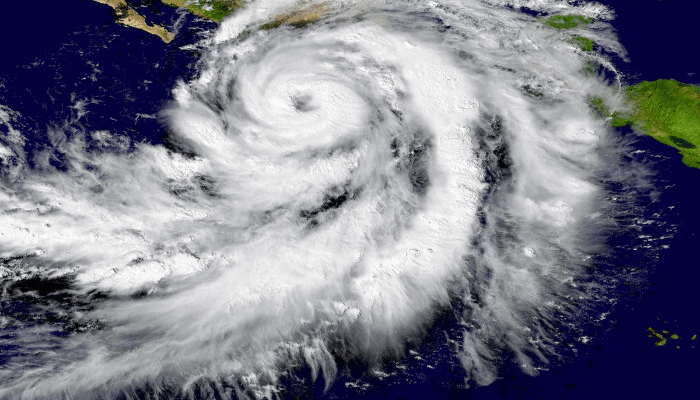By Emmet O’Gara, EVP, Group President – Population Health Management, HMS
As if the healthcare system didn’t have a full plate in the battle against COVID-19, the U.S. is now in the midst of hurricane season. The National Oceanic and Atmospheric Administration (NOAA) predicts this season will be more active than usual, threatening many parts of the country already reeling from the pandemic.
According to NOAA, hurricanes are the most damaging and disruptive natural disaster – of the 246 weather disasters since 1980, hurricanes have caused damage totaling $927 billion averaging $22 billion per event. With 1.2 million Americans living in coastal areas at risk of substantial damage from hurricanes, these storms, like COVID, pose many threats including adding to the death toll, lowering U.S. production, and increasing unemployment.
On its own, a more active hurricane season has important implications for emergency preparedness planning. Now factor in the devastating impact of COVID-19, and it’s clear that preparation and planning, notably for health plans and insurance companies, comes with higher stakes this year. The American Red Cross is a shining example of such planning. The organization is hoping to minimize contact between displaced residents by housing them in hotels, rather than in mass shelters at public venues, and are developing new protocols for shelters such as distancing measures, temperature checks, and providing personal protective equipment.
Under ‘normal’ circumstances, those impacted by hurricanes often worry about accessing healthcare services and critical medications, and COVID-19 will amplify these concerns. With more patients at risk than ever, health plans should look to proactively develop emergency response plans and launch rapid outreach campaigns targeted at members affected by these storms.
Key Considerations for Health Plans to Deploy Effective Rapid Member Outreach
Understanding there are more, complex emergencies to plan for this year, health plans should look to the actions being taken already by the American Red Cross, as mentioned above, and other government, state and local authorities to guide their emergency response strategy. Recommendations to keep in mind from the Centers for Disease Control and Prevention (CDC) suggest that people in hurricane zones should allow extra time to acquire emergency supplies and medications in advance of a projected storm considering potential delays due to COVID-19. To minimize the risk of contracting the virus, health plans can remind members about mail order prescription options and pharmacies that offer drive-through pickup.
Socioeconomic factors are also an important aspect for health plans to consider, as certain members may be less prepared to deal with the impacts of a hurricane as a result of their social determinants of health (SDOH) and the toll the pandemic has had on these factors. If you consider the U.S. employment rate of over 20 million Americans following COVID, for example, some members who have lost their jobs could make buying bottled water, non-perishable food and other storm supplies unaffordable or the option of evacuating their homes unrealistic. In these instances, health plans can help address health disparities by reaching out to these at-risk members specifically and connect them with local resources that can help get them the support and resources they need.
The current toll of mental and emotional health in the U.S. is another factor to plan for. With a recent Kaiser Foundation study revealing more than half of U.S. adults believe the pandemic has worsened their mental health, health plans should be mindful of the type of message they are delivering and the cadence of outreach to be sensitive to this mass toll. Plans should avoid messaging that causes ‘disaster fatigue’ and because members may be less willing to pay attention to more bad news, such as that of an approaching hurricane, plans should launch messaging that members will pay attention to. This means developing content rooted in behavioral-science based methodology and that delivers the important information they need clearly.
Plan Now To Help Mitigate Further Disruption
COVID-19 has taken an unprecedented toll on Americans’ physical and mental wellbeing, and hurricane season has the possibility of disrupting the country further. However, health plans can play a major role to keep their members in hurricane-prone regions safe and informed by proactively developing rapid member outreach and strategic response plans that take into account member population health insights and more targeted, thoughtful outreach tactics. Developing an outreach strategy, or refining an existing one, will help your organization and its members be prepared and have better peace of mind for the inevitable disruption that lies ahead.
Emmet O’Gara serves as EVP, Group President, Population Health Management (PHM) at HMS, a healthcare technology, analytics and engagement solutions company where he oversees all aspects of the PHM division’s business development, product innovation and delivery capabilities.
The Editorial Team at Healthcare Business Today is made up of skilled healthcare writers and experts, led by our managing editor, Daniel Casciato, who has over 25 years of experience in healthcare writing. Since 1998, we have produced compelling and informative content for numerous publications, establishing ourselves as a trusted resource for health and wellness information. We offer readers access to fresh health, medicine, science, and technology developments and the latest in patient news, emphasizing how these developments affect our lives.








